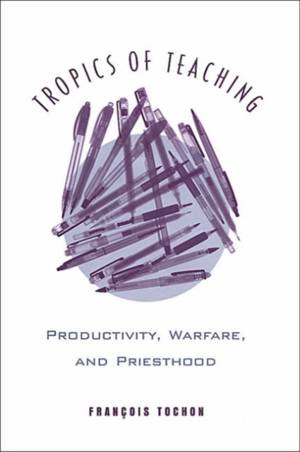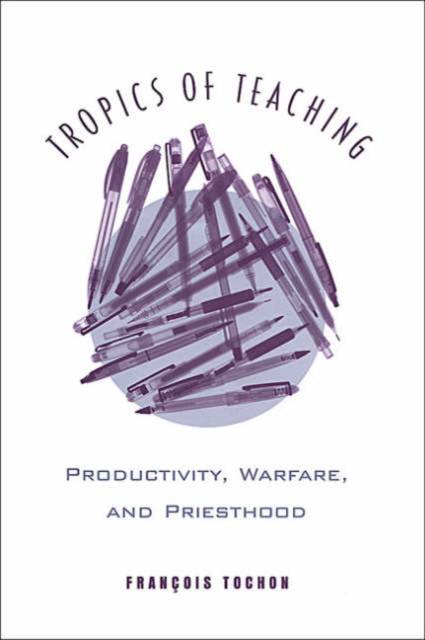
- Retrait gratuit dans votre magasin Club
- 7.000.000 titres dans notre catalogue
- Payer en toute sécurité
- Toujours un magasin près de chez vous
- Retrait gratuit dans votre magasin Club
- 7.000.0000 titres dans notre catalogue
- Payer en toute sécurité
- Toujours un magasin près de chez vous
Description
Teacher education and research on teaching are surrounded by 'a culture of niceness' which can prevent the expression of problems experienced by teachers and researchers. Based on the premise that deconstruction and demystification are a necessary counterforce to 'shared myths, ' François Tochon offers a provocative, original assessment of mass educational concepts and teacher education, leading to a challenge of rethinking pedagogy in general.
The author identifies three shaping metaphors: 'productivity' (output standardization; business efficiency), 'warfare' (strategy; expertise), and 'priesthood' (the enlightened subject) - which he argues stifle individual growth in a classroom context. He then advocates an entirely different approach, which he terms 'a countermethodology of self-reflection, rather than an incursion into the life of the Other.' This approach is achieved, in part, via a technique he calls Action-Poetry: a means of research and educational activism.
Tochon's original contribution to educational scholarship - and his direct challenge to educators themselves - is the practice of reflective, situated research with classroom observation (his own journal entries are included in the text). Tropics of Teaching is a call to education specialists and to scholars in social and literary studies to rethink current education curricula, policies, and philosophies.
Spécifications
Parties prenantes
- Auteur(s) :
- Editeur:
Contenu
- Nombre de pages :
- 192
- Langue:
- Anglais
- Collection :
Caractéristiques
- EAN:
- 9780802036858
- Date de parution :
- 28-12-02
- Format:
- Livre relié
- Format numérique:
- Genaaid
- Dimensions :
- 175 mm x 222 mm
- Poids :
- 417 g







